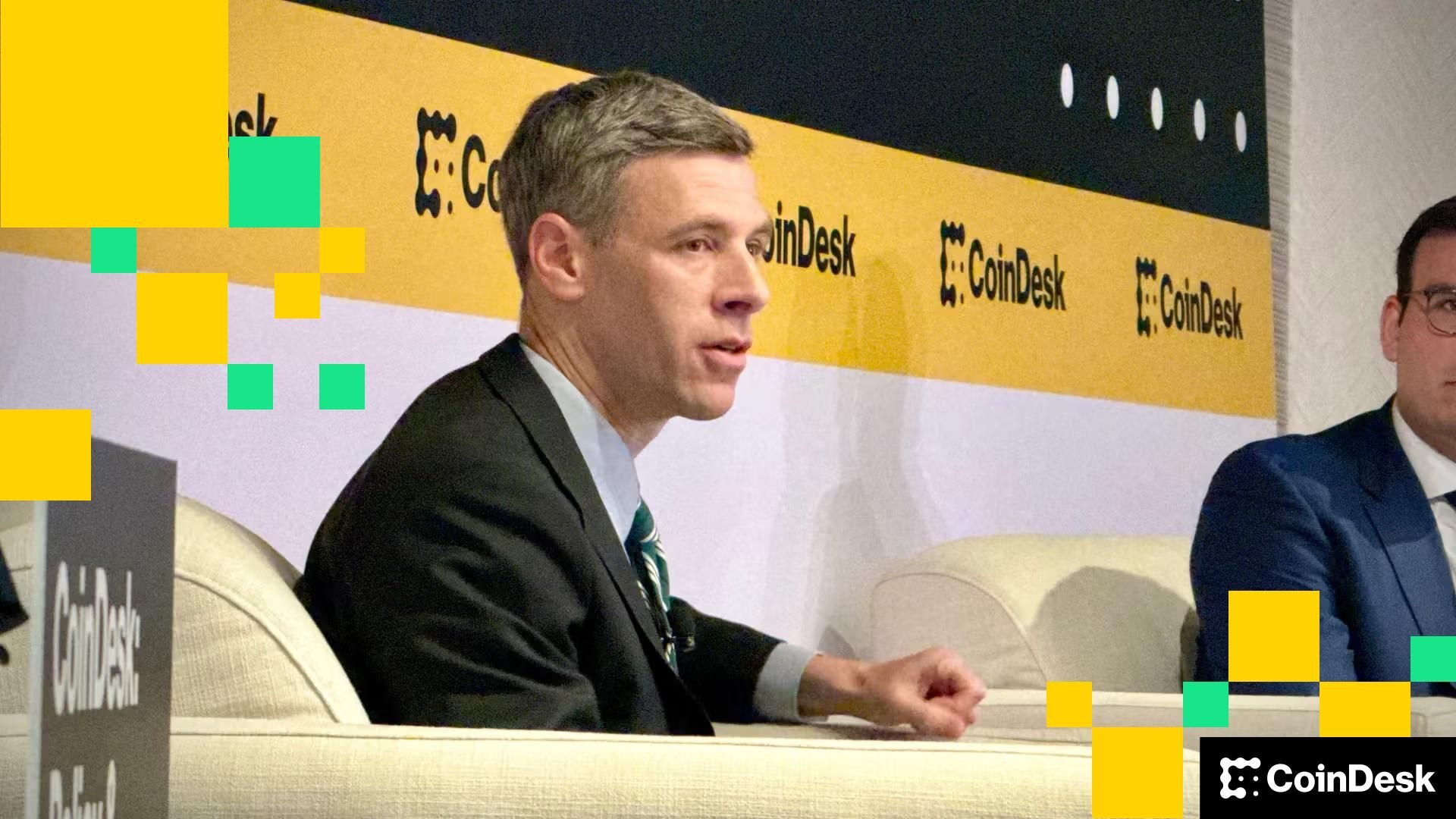U.S. Regulator OCC Clarifies How Banks Can Handle Network ‘Gas Fees’
The U.S. Office of the Comptroller of the Currency explained to the national banks it oversees how they can hold crypto for paying gas fees.
By Jesse Hamilton|Edited by Sheldon Reback
Nov 18, 2025, 4:38 p.m.

- The chief regulator of U.S. national banks, the Office of the Comptroller of the Currency, signaled that it’s OK for banks to maintain crypto on their balance sheets for what they expect to pay in blockchain “gas fees.”
- The policy was issued as an interpretive letter on Tuesday.
The U.S. Office of the Comptroller of the Currency issued new policy guidance that lays out how national banks can maintain crypto assets to be used for the payment of blockchain networks’ “gas fees.”
STORY CONTINUES BELOW
In what’s known as “interpretive letter No. 1186,” the agency said Tuesday that the banks can keep on their balance sheets digital assets they think will reasonably be required for their operations.
Blockchain networks routinely require the use of their own specific token as a fee for transactions, so banks that wish to handle such activity need to have the necessary assets on-hand. Activity “explicitly allowed under the Guiding and Establishing National Innovation for U.S. Stablecoins Act” will require banks needing to pay network fees as an agent for customers or as part of its custody operations, the letter said.
The need for banks “to pay network fees to facilitate otherwise permissible crypto-asset activities and to hold, as principal, amounts of crypto-assets on balance sheet necessary to pay network fees for which the bank anticipates a reasonably foreseeable need is permissible for the bank,” the OCC concluded
U.S. banking regulators — also including the Federal Reserve, Federal Deposit Insurance Corp. and the wider Treasury Department — are already working on writing new regulations to govern stablecoin issuers and activity, based on the new GENIUS Act requirements. But those rules aren’t yet in place for the law approved earlier this year.
The OCC has reversed years of hesitation about letting regulated banks engage in digital assets activity with the arrival of the pro-crypto administration of President Donald Trump. The agency is now run by Trump appointee Jonathan Gould, who was confirmed by the Senate in July.
Read More: What Are Ethereum Gas Fees?
More For You
Nov 14, 2025

What to know:
- As of October 2025, GoPlus has generated $4.7M in total revenue across its product lines. The GoPlus App is the primary revenue driver, contributing $2.5M (approx. 53%), followed by the SafeToken Protocol at $1.7M.
- GoPlus Intelligence’s Token Security API averaged 717 million monthly calls year-to-date in 2025 , with a peak of nearly 1 billion calls in February 2025. Total blockchain-level requests, including transaction simulations, averaged an additional 350 million per month.
- Since its January 2025 launch , the $GPS token has registered over $5B in total spot volume and $10B in derivatives volume in 2025. Monthly spot volume peaked in March 2025 at over $1.1B , while derivatives volume peaked the same month at over $4B.
More For You
By Ian Allison|Edited by Omkar Godbole
Nov 17, 2025

A series of ICIJ reports unearth a litany of crypto-backed criminality including people trafficking operations, drug cartels, Russian criminal gangs and crypto-to-cash storefronts around the world.
What to know:
- The ICIJ’s series of investigative reports into crypto showed how illicit funds are funneled through major exchanges such as Binance, OKX, Coinbase, Kraken, Bybit and Kucoin.
- More than 100 journalists from more than 35 countries partnered with ICIJ on the project.
- ICIJ media partners include The New York Times, Le Monde, The Toronto Star, Malaysiakini, The Indian Express and the Australian Financial Review.
-
Back to menu
Prices
-
Back to menu
-
Back to menu
Indices -
Back to menu
Research
-
Back to menu
Consensus 2026 -
Back to menu
Sponsored
-
Back to menu
Videos -
Back to menu
-
Back to menu
-
Back to menu
Webinars
Select Language












